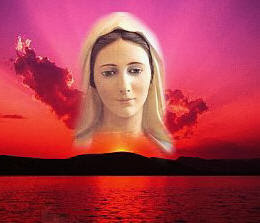The Catholic Church's special "Synod on the Middle East" opened today in Rome with a Mass in St. Peter's Basilica. The purpose is mainly pastoral: to consider how the Church can better live her mission in that region of the world. But the problematic political tensions in the region are also a concern...
By Robert Moynihan ===================================== "The great history of evangelization recounted in the Acts of the Apostles begins with the Christian community in the Holy Land. All Christians and people of good will look to this land made holy by the presence of the Lord Jesus, particularly at this time..." —Opening lines from the Lineamenta, the guideline for the Special Bishops' Synod on "The Catholic Church in the Middle East: Communion and Witness," October 10-24, 2010
"Salvation is universal, but it passes through a specific historical mediation: the mediation of the people of Israel, which goes on to become that of Jesus Christ and the Church." —Pope Benedict XVI, Homily, Opening Mass of the Synod on the Middle East, St. Peter's Basilica, Sunday, October 10, 2010 =============================================="The Door of Life Is Open for Everyone — But It Is a Door..."
In fact, the basilica seemed no longer to rise from the soil of Rome, in Western Europe, but rather to have been transported, as if on some magic carpet, to Jerusalem, or Baghdad, or some other city of the near Orient.
Why? Because it was filled with robes, and colors, and head coverings (see photo) which seemed to come out of some scene in the Arabian nights, as 185 bishops from that majestic and troubled region of the world, along with 70 experts and advisors, gathered here from Israel, Jordan, Iraq, Egypt and a dozen other countries in the Middle East. Pope Benedict immediately made clear that the central focus of this meeting is the same as the focus of his entire pontificate, and of the Church herself: simply Jesus Christ, and the salvation Christ brought, and brings.
When we think of the Middle East, Benedict said, when we think of the Holy Land, of Jerusalem, of the Holy Sepulchre where Jesus's body was laid in the tomb, we think of the doorway through which all of human history, and all of human hope, once passed.
When we think of the promise made by God that he would accomplish a universal salvation by means of a covenant, beginning with Abraham, Benedict said, we have hope that all of us may reach that "Promised Land" of peace and abundance.
(Photo, Synod delegates at the Mass in St. Peter's Basilica this morning. On the right is Patriarch Twal of the Latin-rite Catholic Church in Jerusalem)
"God is love and wants all men to be part of His life," Benedict said. "To carry out this plan He, who is One and Triune, creates in the world a mystery of a communion that is human and divine, historical and transcendent: He creates it with the 'method' -- so to speak -- of the covenant, tying himself to men with faithful and inexhaustible love, forming a holy people, that becomes a blessing for all the families of the earth (cf Gen 12:13). Thus He reveals Himself as the God of Abraham, Isaac and Jacob (cf Ex 3:6), who wants to lead his people to the 'land' of freedom and peace. This 'land' is not of this world; the whole of the divine plan goes beyond history, but the Lord wants to build it with men, for men and in men, beginning with the coordinates of space and time in which they live and which He Himself gave them."
This, in a sense, is the central message of this Synod, already stated beforehand by the Pope in this opening homily.
The message is that the "Promised Land" of freedom and peace to which God wishes to lead "His" people is, yes, "not of this world," for, as the Pope says, "the whole of the divine plan goes beyond history."
And yet, at the same time, "the Lord wishes to build it [the Promised Land] with men, for men and in men, beginning with the coordinates of space and time in which they live and which He Himself gave them."
In these words is an appeal to all those who live in the Holy Land, Jew and Gentile alike, Muslim, Christian and atheist alike, that the "Promised Land" of freedom and peace begin to be built here and now, in this privileged time, our own time, which is the acceptable time, should hearts be open enough to realize it.

No comments:
Post a Comment
Please no anonymous comments. I require at least some way for people to address each other personally and courteously. Having some name or handle helps.
Note: Only a member of this blog may post a comment.